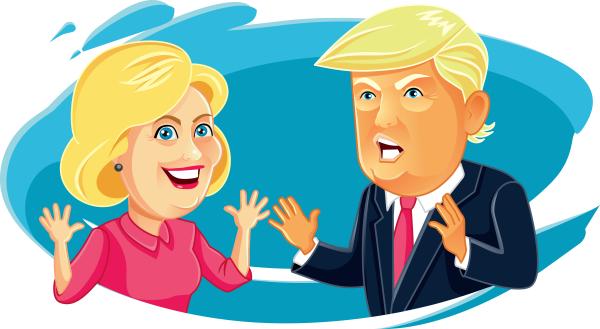
The first debate between businessman Donald Trump and former Secretary of State Hillary Clinton will take place at Hofstra University Hempstead, N.Y. this evening and it has gripped news media. Some wonder if Trump can switch from dealmaker to debater, while George Stephanopoulos, current Chief Political Correspondent for ABC News and former White House Communications Director for President Bill Clinton, said on ABC yesterday that Hillary Clinton simply can't have a coughing fit.
This is in reference to pundits (and even a few doctors) speculating about her health, a topic which I covered using evidence-based thinking here.
There are ways to ensure that Clinton won't cough - narcotics - but those are prescription medications and would unlikely be used during a debate, for reasons I will detail below. If, as a former Clinton insider like Stephanopoulos suggests, the goal is to make sure she doesn't have a coughing fit, what short of narcotics will be effective?
First, understand a cough is often a good thing. Though we are culturally conditioned to stop anything unpleasant immediately, from a health perspective the ability to mount a vigorous cough is nature’s way to prevent something worse. A cough moves secretions and irritants out of the lungs where they are contributing to infection. Kids are little mobile petri dishes of infection, putting everything in their mouth, and while it upsets parents it doesn't concern me. The run-of-the-mill cold primes the immune system and subsides on its own.
But this is a Presidential debate. Everything is under scrutiny. If advisors are worried that any cough can be misperceived, there are over-the-counter options. These medicines include antihistamines (like diphenhydramine— Benadryl’s active ingredient), decongestants (e.g. phenylephrine and pseudoephedrine), cough suppressants and expectorants. Antihistamines are intended to dry out mucus. The very young commonly have paradoxical excitement as a side effect from these whereas the adult population will get sedation. During a cold, it is good to drink plenty of liquids to moisten the phlegm so it can be coughed and spit out or blown out of the nose. Decongestants constrict blood vessels. This serves to increase heart rate and blood pressure. Rarely, they have caused hallucinations.
Since there is a lack of evidence that they work very well they might not be worth it and I said narcotics would not be a good idea. Here's why. Medicating perception or other's discomfort is never in the best interest of the patient. Codeine, for instance, can be effective and used to be in over-the-counter (OTC) drugs. However, it is a delicate dance. Suppressing a cough also lowers one's respiratory drive, not a benefit to a healing pneumonia, for example. Narcotics can impact alertness, prompt dizziness or lightheadedness, cause nausea and vomiting as well as shortness of breath. We also can't know what adverse reactions could occur given the other medicines she takes.
Hopefully, this will be an informative debate with each candidate remaining healthy and without fits, coughing or otherwise!



